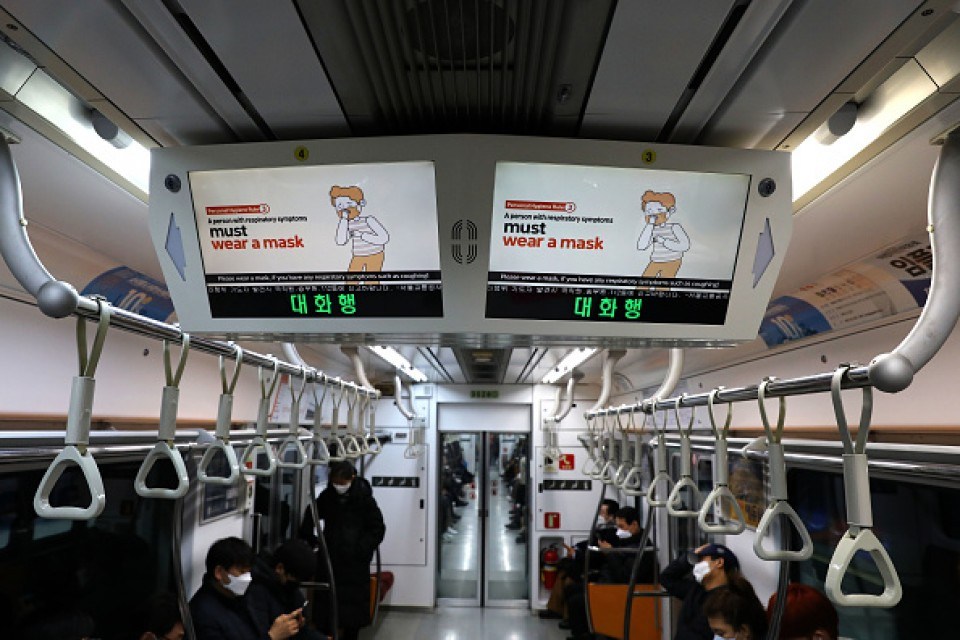For over a month, South Korea has been keeping the curve of corona infections flat without closing restaurants, shops and schools across the country and imposing drastic exit restrictions.
But the digital dimension of the country's anti-corona strategy cannot be a blueprint for Europe.
In many industrialized countries, people are now looking for ways to gradually relax corona restrictions without triggering another wave of infection after the curves have flattened.
Using electronic mobility data to monitor the spread of the virus and smartphone apps as an early warning system are among the most promising solutions. Scientists and politicians in many countries are counting on the rapid development and widespread use of corona-warning apps to support the authorities in tracing infected people.
More than half of all infections, as we know today, happen before symptoms of Covid19 appear. This makes it all the more important to quickly and effectively identify all transmission-relevant contacts of infected persons to break the infection chains.
The example models for digital measures in the fight against the spread of the corona virus are countries such as China, Singapore, Taiwan and South Korea, which have allowed their authorities to use bluetooth technology or location data to digitally reconstruct chains of infection, successfully containing the pandemic.
In most cases, however, a very rigid approach is taken, which ignores the consequences for data protection, privacy and informational self-determination. Even a democratic country like South Korea seems to prioritize the digital fight against the threat, putting it above the protection of fundamental rights in the current crisis.
Digital corona monitoring in private-public partnership
In an international comparison of countries, the Bertelsmann Stiftung's Sustainable Governance Indicators (SGI) give the South Korean government good marks in principle for providing data on use and reuse (8 out of 10 possible points).
The government also made data on Covid-19 patients freely available on its data portals early on. Developers from the private sector immediately used them to program smartphone apps for corona defense.
One of the apps widely used in the country is Corona 100m, an application that shows the location of a patient infected with the virus, the date when the infection was confirmed, the nationality, sex and age of the patient. The app warns users when they approach 100m from a location previously visited by an infected person.
There are also other mapping apps that can track the movements of infected people, apps that can be used to monitor people in domestic quarantine, and even smart city tracing systems that allow health authorities investigators to track the mobility of confirmed infected people by quickly accessing images from surveillance cameras and credit card transactions.
The specific nature of the publicly available data on infected persons in South Korea has triggered data protection concerns worldwide and also in South Korea. Following the serious MERS outbreak in 2015, Parliament passed legislation that explicitly allows the authorities to publish such personal information.
Openness and transparency instead of data protection
South Korea's low level of data protection is also reflected in the SGI data, with only 5 out of 10 possible points awarded for South Korea's 2019 data protection efforts.
Although the East Asian democracy has a data protection authority, it is not very effective. The country report states: "Data protection is regulated by the Personal Information Protection Act (PIPA). Compared to the European Union’s General Data Protection Regulation (GDPR), data-protection rules are weak, and the issue remains a problem particularly in the private sector. For example, PIPA lacks the right to be forgotten and the right to refuse profiling.”
"We have dealt with this outbreak from the very beginning with full transparency and that’s the way we’ve won the public trust and support," said South Korean Foreign Minister Kang Kyung-wha in a recent BBC interview.
The government is visibly proud of the fact that it has so far succeeded in curbing the spread of Covid-19 with its digital measures. It is using its success for a veritable "corona diplomacy", although the foreign minister admits that the South Korean response to the corona threat "may not be applicable in other countries with less IT infrastructure and other values”.
New standard for data protection-compliant monitoring apps
The European way in the development of a corona warning app in reality looks quite different. It relies on voluntary use, wants to record the proximity and duration of contact between people for a limited period of time, remain completely anonymous and without location detection, and also seeks to fully comply with German and European data protection laws.
First an initiative of researchers and developers from almost 30 European organizations and companies, was seeking to develop a new standard for tracking mobile phone users. The so-called Pan-European Privacy-Preserving Proximity Tracing (PPEP-PT) was meant to be a basic solution that conforms to EU data protection regulations and could be used beyond national borders.
The first corona-warning apps based on this standard were supposed to be available soon after Easter, but a dispute has flared up among scientists and data protectionists on the question of central data storage as planned by the PPEP-PT initiative.
In an open letter, 280 scientists from all over the world called for the development of a technology that completely dispenses with the need to collect data on an institution's server. The technology companies Google and Apple, which for their part had announced plans to cooperate on the development of corona warning apps, also advocate decentralized storage of data, solely storing on users' devices.
At the end of the day, earning the population’s trust is key for the success of the app, which will only work if it is widely adopted. Thus, the German government has already changed tracks and decided to support the decentralized approach.
Karola Klatt


